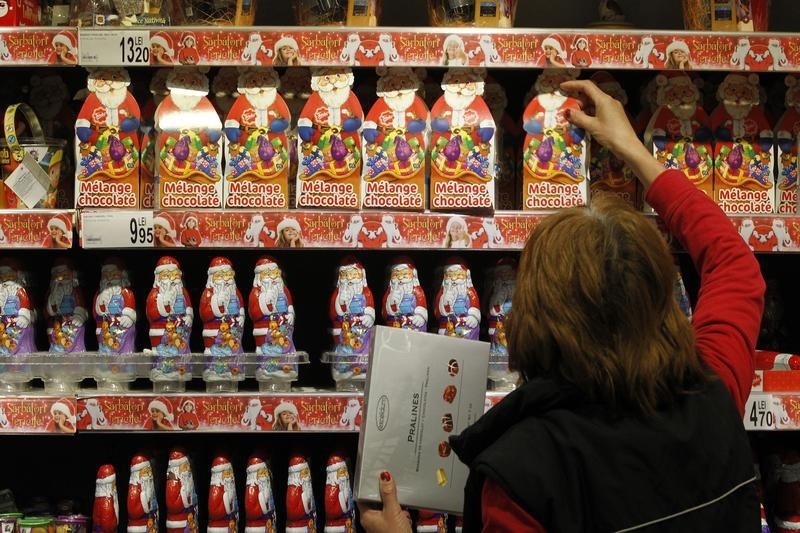By Emma Thomasson
BERLIN (Reuters) - Looking for a unique Christmas gift to wow friends or family? Try some specially tailored perfume, chocolates stamped with a personal message or sneakers embossed with a selfie.
Products with that individual twist are not really new. It has long been possible to get a basic T-shirt, baseball cap or umbrella printed with a name or photo.
But big consumer brands, including major names like Coca-Cola (N:KO), and Nike (N:NKE) have latched on to personalised products because they seem to have a particular appeal to consumers known as "Millennials" in marketing speak.
Used to posting selfie mobile phone shots on social media, this generation, who came of age from around 2000, wants something more than just the latest hot brand name.
Millennials still like brands but expect them to listen and react to their ideas and criticism in real time and allow them a role in shaping future products.
They have become a big focus of marketing experts as their spending power grows.
"They're drawn to brands who are rethinking the way things are done. They want to be heard," Maryleigh Bliss, trends editor at youth marketing firm Ypulse, told the World Retail Congress earlier this year.
Early to respond was Mars Inc, which prints tiny personal messages and photos on M&Ms chocolates, and Coca-Cola which scored a hit by putting people's names on its bottles, selling more than 150 million.
"It was a crazy idea but ... it really connected because it has all the characteristics that appeal to Millennials," Coca-Cola chief marketing officer Joe Tripodi said.
"It was customisable, it was social."
Coca-Cola has gone a step further to produce its first fully user-generated commercial, including shaky videos showing its fans enjoying a Coke. It has also come up with the Freestyle machine which allows people to mix their own soft drink.
The "co-creation" fad is spreading to more complex products and processes as technology brings down costs.
U.S. sportswear firm Nike allows people to customise colours of shoes and accessories. German rival Adidas (DE:ADSGn) has tapped into the selfie obsession by offering shoppers the option to put personal images on the uppers of ZX Flux sneakers.
THE FUTURE OF RETAIL?
While Adidas customers currently have to wait three to four weeks for the delivery of "selfie shoes," the proliferation of technology like 3-D printing means it might not be long before personalised products can be made on the spot in a store.
Ben Perkins, a consumer expert at consultants Deloitte, said brands and retailers have to act fast to keep up with rising expectations for more personalisation.
"As speeds improve, this kind of real-time product design, development and manufacture is going to be increasingly scaled," he said. "Don't look at your customer base today but look at them tomorrow and think about how you need to embed these approaches and technologies ... in your organisation now."
Retailers trying to cope with the growth of online shopping are also looking at co-creation as a way to attract consumers back into their stores.
British department store Selfridges and Swiss fragrance maker Givaudan (VX:GIVN) created a "lab" installation where shoppers can develop a perfume, bottle shape and label tailored to their personality.
Australian online start-up Shoes of Prey allows customers to choose from 170 different fabrics to design their own shoes. It launched studios in six branches of upscale U.S. department store chain Nordstrom (N:JWN) last month.
Shoes of Prey delivers within four weeks but is working towards a two-week turnaround. Chief Executive Michael Fox said that the business model was more profitable and involved less waste as there was no need to discount excess stock.

"Customers are looking to participate in the design process to get exactly what they want. Together we see customisation and manufacturing on demand as the future of retail," Fox said.
(Reporting by Emma Thomasson. Editing by Jane Merriman)